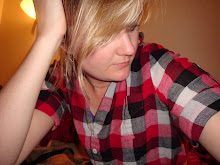It cannot be denied that in America today there exists a powerful subset of elite who have been ‘running the show’ - in government, on Wall Street, and in the boardroom. We see these people as “the best and the brightest”; presumably they have made their way to the top because of their intelligence and their hubris.
And yet, over the last several years we’ve seen a complete breakdown of the economic and political systems that they are charged with (as noted by David Brooks in his column last week.) How could this happen? One thing Brooks suggests briefly is that we as a society have a very narrow view of intelligence, and completely neglect to consider and reward emotional intelligence*: the ability to identify, assess, and manage the emotions of one's self, of others, and of groups.
I could not agree more. Having worked in a high functioning corporate environment, I’ve been exposed to many leaders considered part of the “power elite”. Most went to Ivy League schools and are highly intelligent in the traditional sense. Of this group, the ones who are the most effective, who truly inspire, motivate, and engage, are the ones who have a high level of emotional intelligence. They are empathetic, open, and able to deeply perceive and connect with the sentiments of a group. They have a humble understanding of how they fit into the current social and political context of their organization, as well as awareness around their own emotional tendencies. They also have the ability to bounce back quickly from failure, with an understanding of the lessons that can be gleaned, and with a positive outlook on the future.
Empathy, self-awareness, positive thinking – these elements of emotional intelligence are absolutely tantamount to success. So why don’t we value them more? Why don’t we teach emotional intelligence to children in schools, and incorporate it into the cultural fabric of more organizations? Other nations are far ahead of us on this. Perhaps it is because we see emotional intelligence as being at odds with the capitalistic values of competition and individualism that have built our nation and brought us historical success. However in today’s complex world of conflicting interests and limited resources, it is clear that these values are only taking us so far.
In my opinion, artists are some of the most emotionally intelligent people, because the creative process in large part involves observation, empathy, emphatic feeling, and reflection. For this reason, I look towards artists for inspiration and emotional learning. I recently watched a TED talk** with Eve Ensler (playwright, author, and performer). In the talk (about the suppression and destruction of girlhood around the world), Ensler says:
"The irony of course is that denying girl, suppressing girl, suppressing emotion, refusing feeling has led us here, where we have now come to live in a world where the most extreme forms of violence, the most horrific poverty, genocide, mass rape, the destruction of the earth, is completely out of control...we do not feel what is going on, so we're not being charged with the adequate response to what is happening."
Ensler’s analogy of “denying girl” is in many ways equivalent to denying our emotional intelligence – that part of our brain and our being that allows us to feel, to connect, and to empathize. While I think she takes it a bit far (probably for dramatic affect), I do agree with the sentiment that denying emotional expression is bad for the individual, and bad for society. Imagine a world where people truly strived to understand each other, and could better comprehend and regulate their own emotional responses. Countless friendships, relationships, and partnerships would be salvaged, even lives saved, if people had the courage to say what they felt and to say it well, and to listen, with thoughtfulness.
I’ve been lucky enough to take a ten-week course on emotional intelligence (thanks to my employer)– and it has had great effect on my life. I hope that emotional intelligence becomes more widely publicized and integrated into our education system and corporate worlds, so that we can reverse the trend of its undervaluation in American society.
*A good general overview of emotional intelligence is Daniel Goleman’s Emotional Intelligence: Why It Can Matter More Than IQ (1996).
**TED Talks are an amazing source of inspiration, emotional and otherwise. TED.com is a small nonprofit devoted to “ideas worth spreading”. On their website they provide free access to lectures by highly successful people on topics such as technology, design, sustainability, and human rights (among many, many others).











